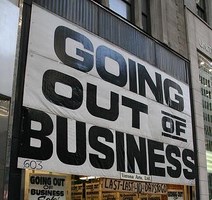 When I was a kid, a commercial for Paul Masson wines aired on television nightly; it featured the great Orson Welles reciting in his baritone voice, “Some things can’t be rushed: good music and good wine… Paul Masson wines taste so good because they are made with such care. What Paul Masson himself said nearly a century ago is still true today: We will sell no wine before its time.” Now forget that Paul Masson wines were mass produced like Budweiser, and likely spent little time between production and sales. But what’s important is the message: All worthwhile things take time.
When I was a kid, a commercial for Paul Masson wines aired on television nightly; it featured the great Orson Welles reciting in his baritone voice, “Some things can’t be rushed: good music and good wine… Paul Masson wines taste so good because they are made with such care. What Paul Masson himself said nearly a century ago is still true today: We will sell no wine before its time.” Now forget that Paul Masson wines were mass produced like Budweiser, and likely spent little time between production and sales. But what’s important is the message: All worthwhile things take time.
Whether we are talking about the development of a skill, like music or cooking, or the accumulation of great (and stable) wealth, time is one component which cannot be compromised. We have all heard stories of miraculous overnight successes, but what we don’t hear is the background story of thousands of hours of practice. It’s true that one can become a master of their craft within a relatively short period of time – that is, if they increase their daily practice hours to twice of what they would do otherwise. But it is time that makes a great master, and to dedicate oneself in time, one needs discipline.
Discipline is the key to all greatness. It is the foundation by which one is driven to put in the hours of practice, study, or work necessary to master one’s craft. Without discipline, it is impossible to reach mastery in less than half a century. Love of the craft helps for sure, but it is discipline that takes you beyond what the joy of performing brings to the lover of any art. Basketball, dancing, hair styling, photography, and writing all require time. Love is what brings you to the art – discipline is what shapes it.
 Every example I have given thus far has been somewhat evident. Likewise, though, are those who wish to express health, wellness, style and beauty; they must also dedicate time and energy to their endeavors. Make no mistake about it: people who consistently look fashionable and attractive put in the work to achieve them. Even making it onto the cover of a fashion magazine takes years of mental preparation. Nobody is simply “lucky” in how they look. Maintaining a fit, healthy, beautiful body takes hours of sculpting. And healthy physiology requires rock-solid discipline – from overeating, from over-indulging in sugar, from drinking to excess, from smoking and doing drugs. People who practice discipline with regard to their physical bodies get rewarded with feeling good, looking good and all other athletic and sexual amenities which come along with this area of attention.
Every example I have given thus far has been somewhat evident. Likewise, though, are those who wish to express health, wellness, style and beauty; they must also dedicate time and energy to their endeavors. Make no mistake about it: people who consistently look fashionable and attractive put in the work to achieve them. Even making it onto the cover of a fashion magazine takes years of mental preparation. Nobody is simply “lucky” in how they look. Maintaining a fit, healthy, beautiful body takes hours of sculpting. And healthy physiology requires rock-solid discipline – from overeating, from over-indulging in sugar, from drinking to excess, from smoking and doing drugs. People who practice discipline with regard to their physical bodies get rewarded with feeling good, looking good and all other athletic and sexual amenities which come along with this area of attention.
One thing that always amuses me is the young professional who thinks he will be a millionaire shortly after hanging his shingle. He has not yet learned that it will take hours of knocking on doors, meeting people, hustling, networking, sending referrals to other professionals, giving free talks, buying lunches, and cleaning toilets (yup) before he even begins to work. Of course, there are some who get lucky out the gate and encounter some success early on, but these stories are rare, and they seldom last forever. I had a colleague with whom I went to school. He had a foreign girlfriend who helped him market to students of the same national origin. As it turned out, these students had medical insurance policies from their home countries that covered their care to a tee. The trust and comfort provided by the girlfriend – a compatriot in a distant land – led to the students pouring into this doctor’s office for care. As a result, he made big money rather quickly, and this led him to believe that he had “made it” professionally too. He became arrogant to his friends, bought a house far bigger than he needed, and expanded his business too quickly. After one year, the foreign insurance company changed its covered services (probably due, in part, to my colleague’s billing practices) and shut off. My colleague ultimately lost it all. He simply couldn’t maintain the false growth. We must build up to business and financial growth in time, energy, and capital. Remember: all worthwhile things take time.
 Parents of grown children know this. How people function as adults is directly related to the time and energy provided to them by their parents. Both mothers and fathers are extremely important to the growth and development of a child. Research shows this; and although children certainly adapt to the absence of one parent, there is no doubt that children do enormously better when both parents are present in body, mind, and spirit. In other words, parents need to be physically present with their children, regularly; they must give the children undivided attention more often than not, and they must show love and appreciation for the blessed honor to do so. Our children require our time and energy, and every parent can attest that along with juggling career and business, physical health, hobbies, and intellectual pursuits, it takes unshakable discipline to give our children the best of us every day. But that is what is required.
Parents of grown children know this. How people function as adults is directly related to the time and energy provided to them by their parents. Both mothers and fathers are extremely important to the growth and development of a child. Research shows this; and although children certainly adapt to the absence of one parent, there is no doubt that children do enormously better when both parents are present in body, mind, and spirit. In other words, parents need to be physically present with their children, regularly; they must give the children undivided attention more often than not, and they must show love and appreciation for the blessed honor to do so. Our children require our time and energy, and every parent can attest that along with juggling career and business, physical health, hobbies, and intellectual pursuits, it takes unshakable discipline to give our children the best of us every day. But that is what is required.
 Finally, and to me the most important, is the time and energy necessary for spiritual self-development. All other endeavors emanate from this essence of our true selves. Spiritual development is what some call “coming to know the self,” and it is the highest effort in which one can engage. A great challenge, however, is that the path often appears as long and arduous, and it can most certainly be. Very likely, for the average person, spiritual development takes the greatest hours of attention, and to move the shortest distance; yet the rewards are also the biggest. Nothing can be as effectively appreciated as through the lens of the soul, what we might call our authentic self. Hundred of thousands of people try meditation (or prayer, or japa, or psychedelics) and never attain what they aspire to; NOT because it is ineffective, but because they have not yet ripened the mind to allow their spirit to flow. I understand this is an esoteric concept, but to know you have to do…and this requires practice. The yogis liken the mind to unripened fruit. When fruit is in this state, it is not pleasant to eat – it will remain on the tree, hard, sour, and undeveloped. Only when the fruit becomes mature, ripened, will it then fall from the tree and open itself to the sweetness that life has to offer. Your mind, like fruit, will not ripen until its time. This time comes over the course of long, arduous spiritual work.
Finally, and to me the most important, is the time and energy necessary for spiritual self-development. All other endeavors emanate from this essence of our true selves. Spiritual development is what some call “coming to know the self,” and it is the highest effort in which one can engage. A great challenge, however, is that the path often appears as long and arduous, and it can most certainly be. Very likely, for the average person, spiritual development takes the greatest hours of attention, and to move the shortest distance; yet the rewards are also the biggest. Nothing can be as effectively appreciated as through the lens of the soul, what we might call our authentic self. Hundred of thousands of people try meditation (or prayer, or japa, or psychedelics) and never attain what they aspire to; NOT because it is ineffective, but because they have not yet ripened the mind to allow their spirit to flow. I understand this is an esoteric concept, but to know you have to do…and this requires practice. The yogis liken the mind to unripened fruit. When fruit is in this state, it is not pleasant to eat – it will remain on the tree, hard, sour, and undeveloped. Only when the fruit becomes mature, ripened, will it then fall from the tree and open itself to the sweetness that life has to offer. Your mind, like fruit, will not ripen until its time. This time comes over the course of long, arduous spiritual work.
 All worthwhile things take time. What you would love to achieve in life will not happen overnight – and you don’t want it to. We all want a long biography, filled with experience, pleasure, pain, and love. This is what we call living. Who you would love to be, how you go about achieving it, as well as what you get to enjoy along the way, all come down to the attention you put into your art(s). But never forget, the greatest aspiration is of self-knowledge or spiritual development. Like fine wine, you will fully appreciate your divine essence when you ripen mentally and spiritually in love and gratitude. I can almost hear it rolling off Mr. Welles tongue: “No mind will align with the divine until its time.” And so it is.
All worthwhile things take time. What you would love to achieve in life will not happen overnight – and you don’t want it to. We all want a long biography, filled with experience, pleasure, pain, and love. This is what we call living. Who you would love to be, how you go about achieving it, as well as what you get to enjoy along the way, all come down to the attention you put into your art(s). But never forget, the greatest aspiration is of self-knowledge or spiritual development. Like fine wine, you will fully appreciate your divine essence when you ripen mentally and spiritually in love and gratitude. I can almost hear it rolling off Mr. Welles tongue: “No mind will align with the divine until its time.” And so it is.

 This piece stirred some thought in my readers, and an excellent question came as a result: What if the flow stops flowing? What if where there was once a stream stagnancy now sits? My initial answer was that many factors could be responsible for that type of scenario, as well there being multiple solutions, each depending on the cause of the drying up. Over the next few posts I will address some of the reasons why someone’s flow might stop flowing.
This piece stirred some thought in my readers, and an excellent question came as a result: What if the flow stops flowing? What if where there was once a stream stagnancy now sits? My initial answer was that many factors could be responsible for that type of scenario, as well there being multiple solutions, each depending on the cause of the drying up. Over the next few posts I will address some of the reasons why someone’s flow might stop flowing.



















